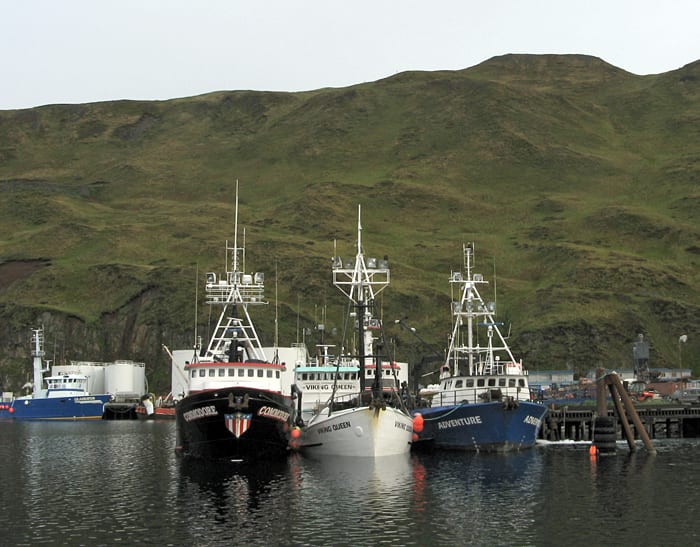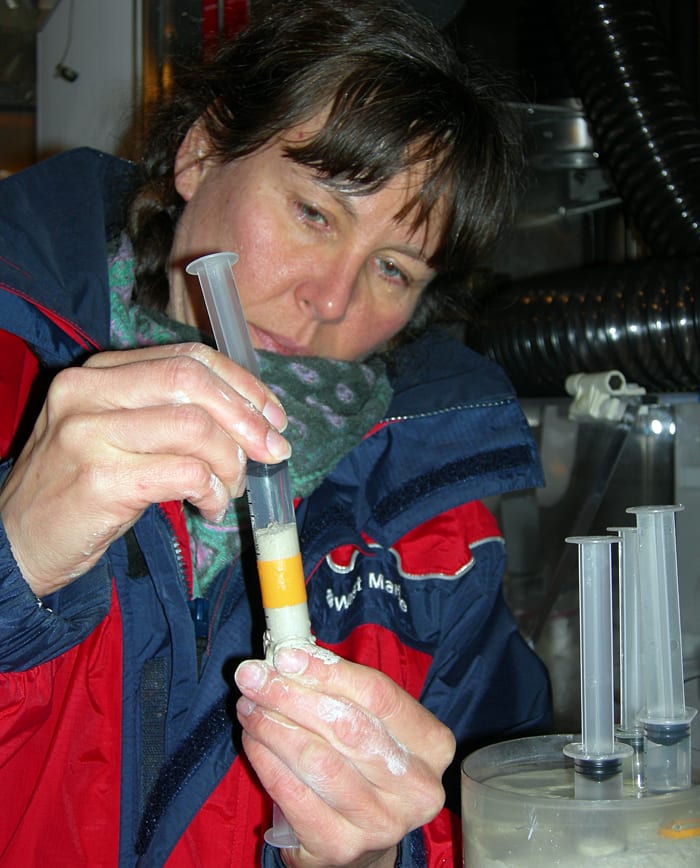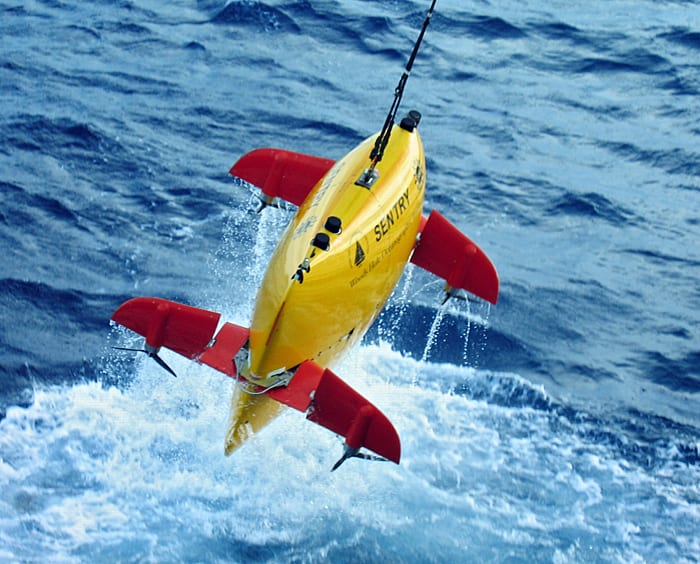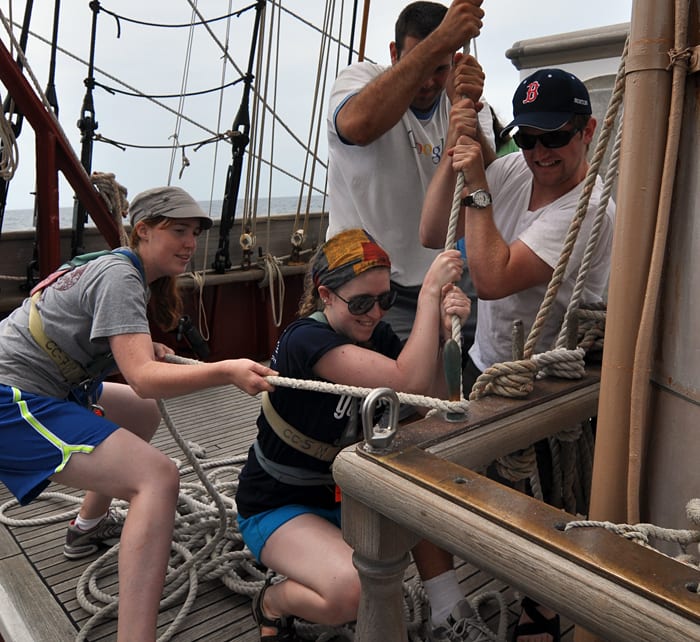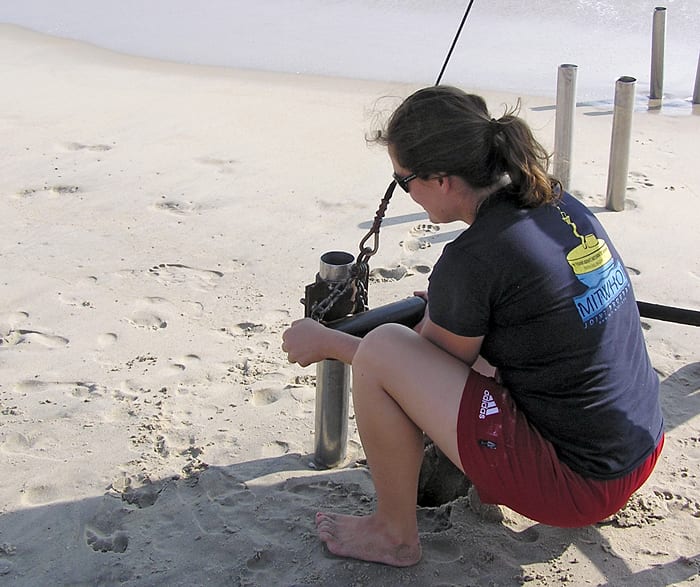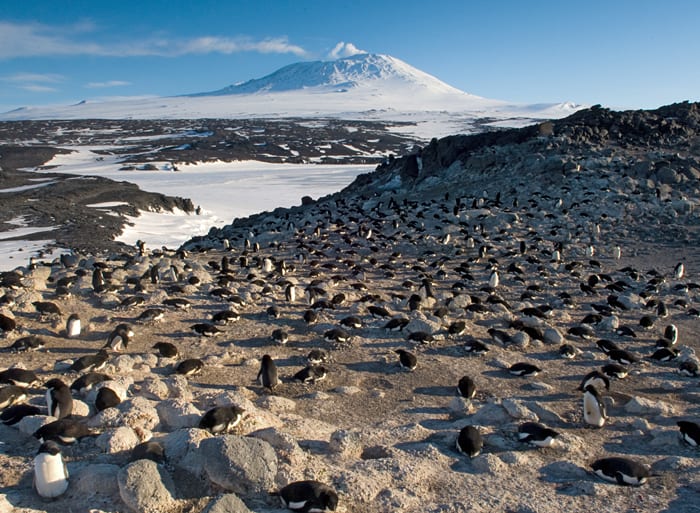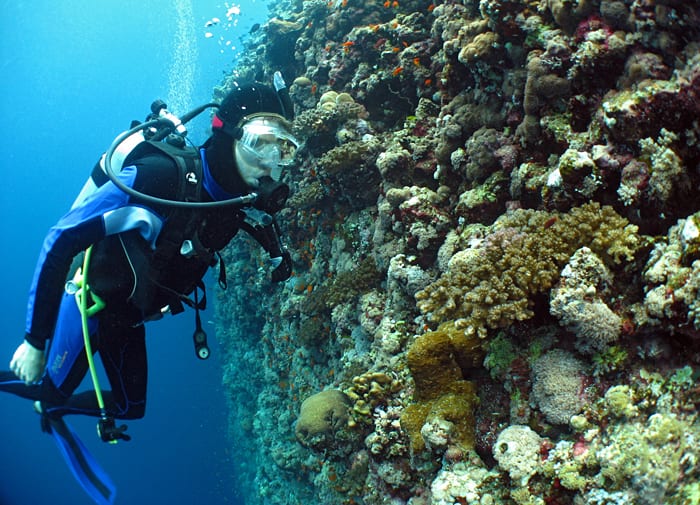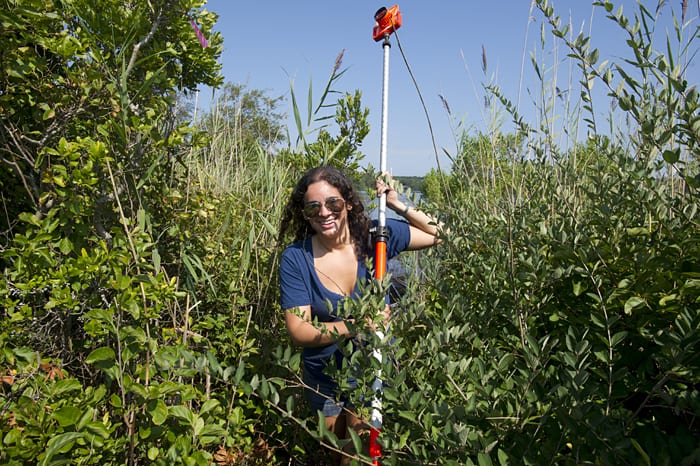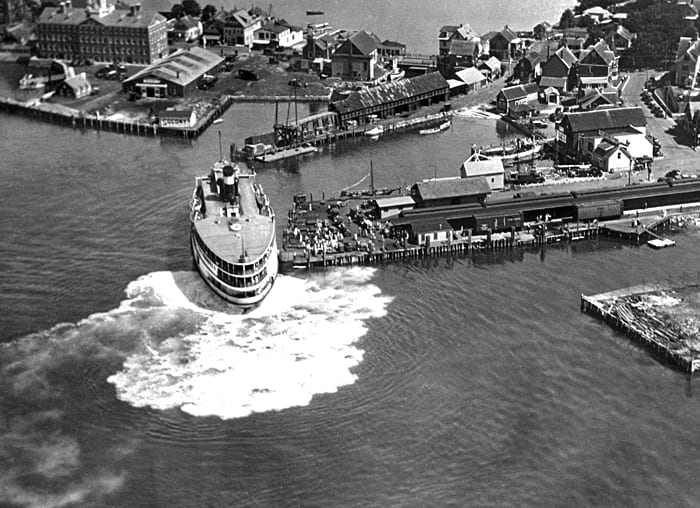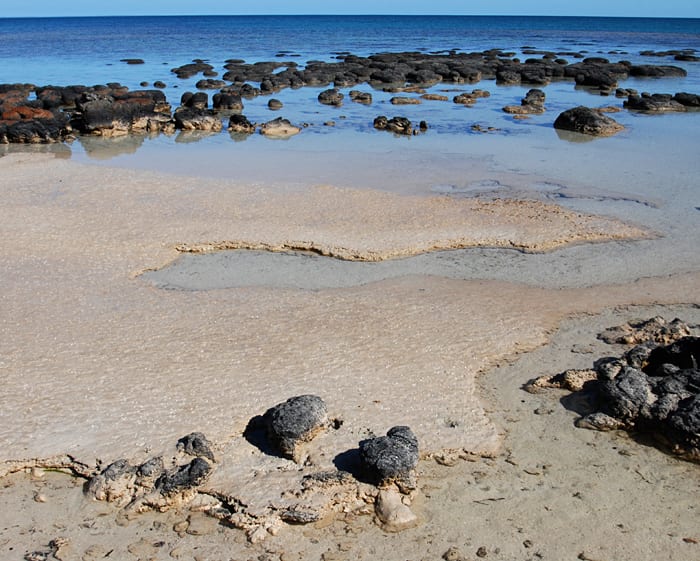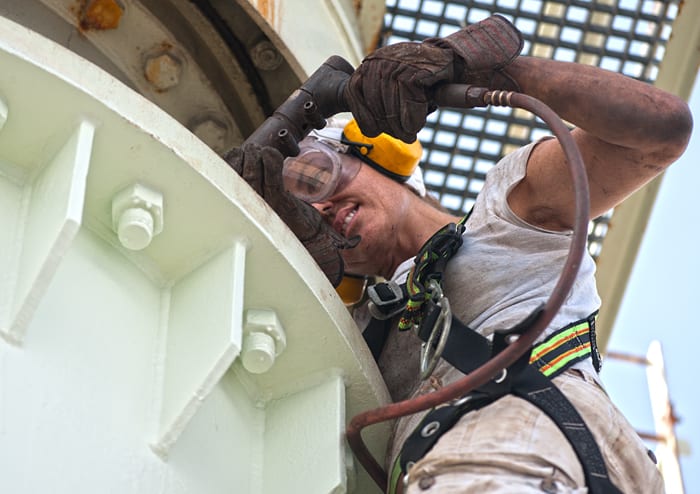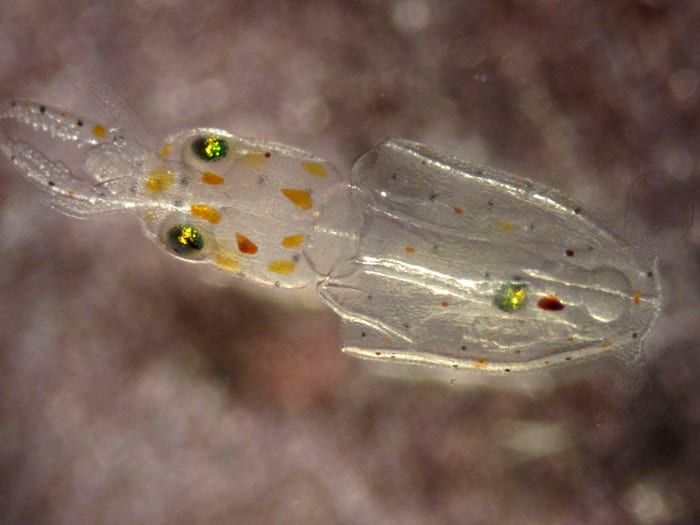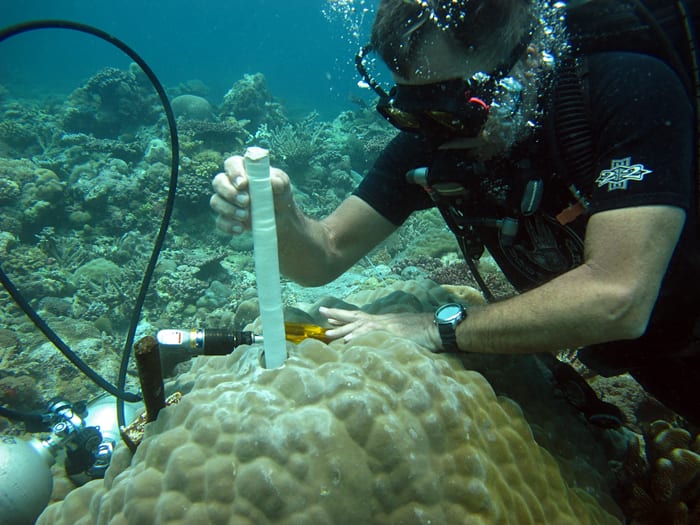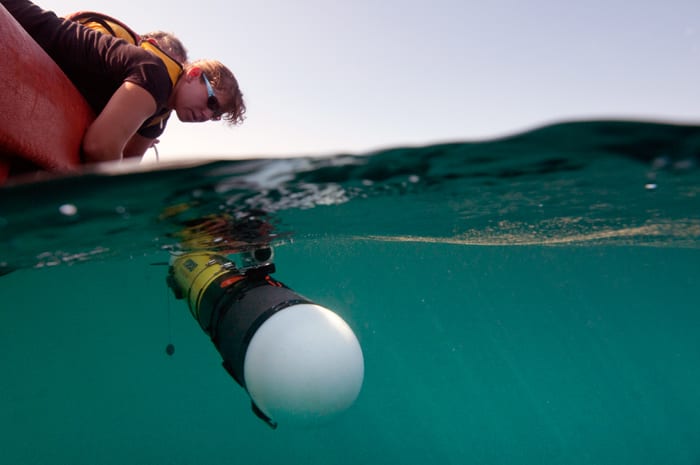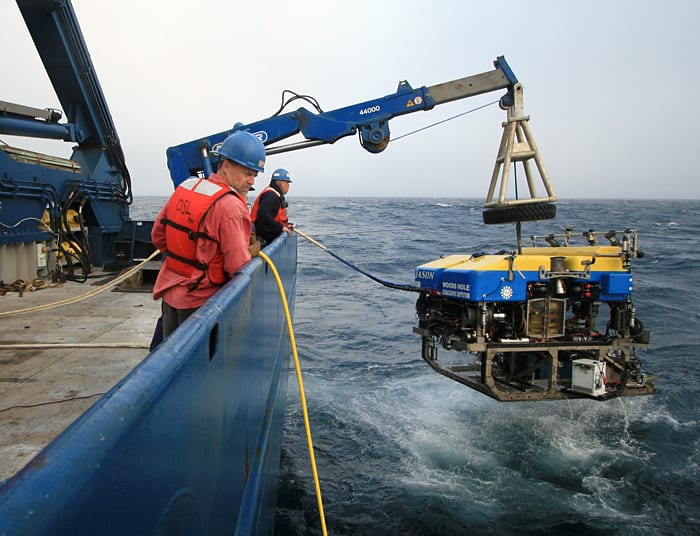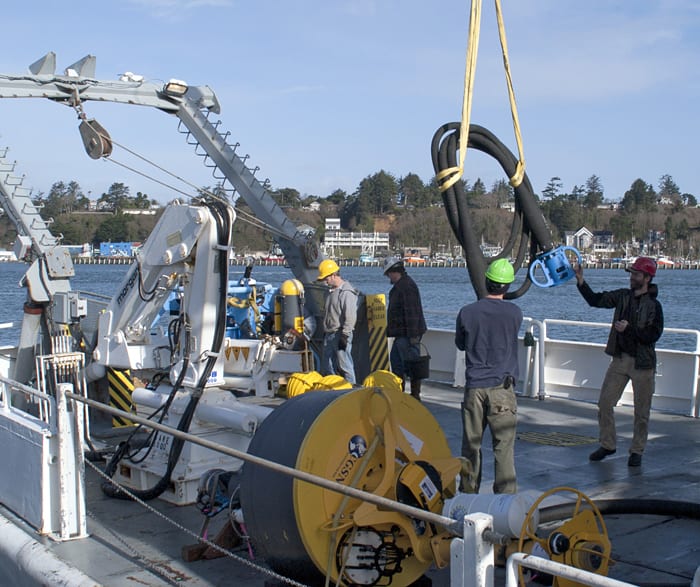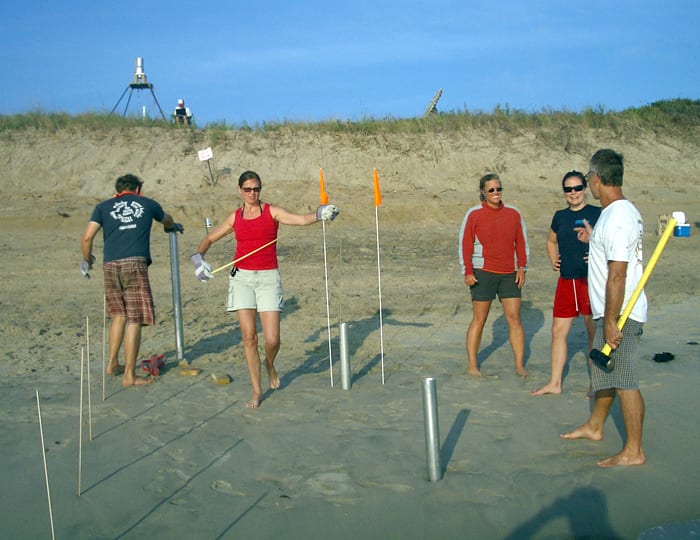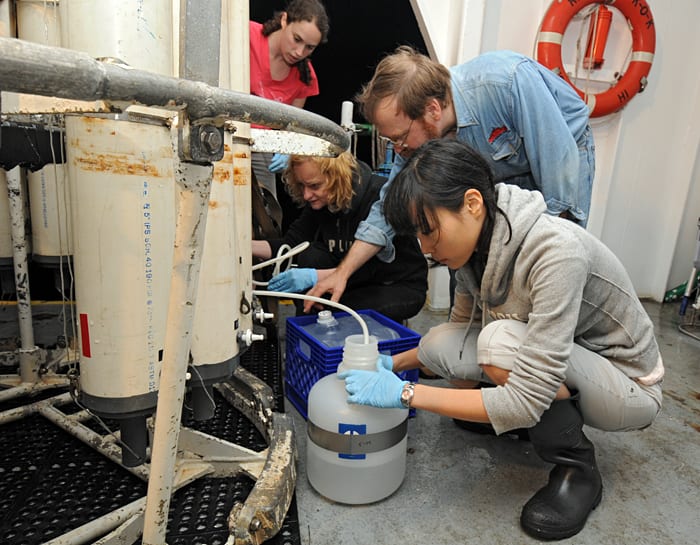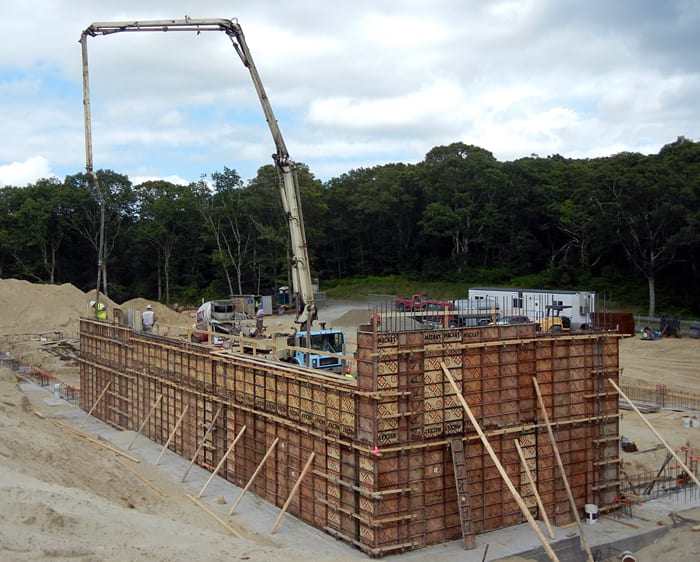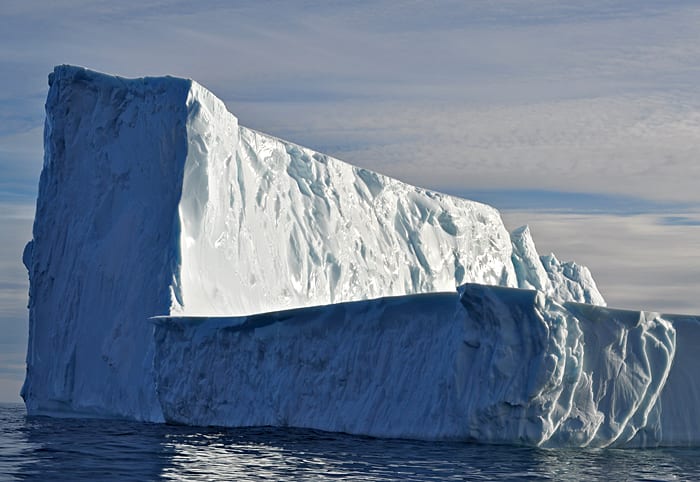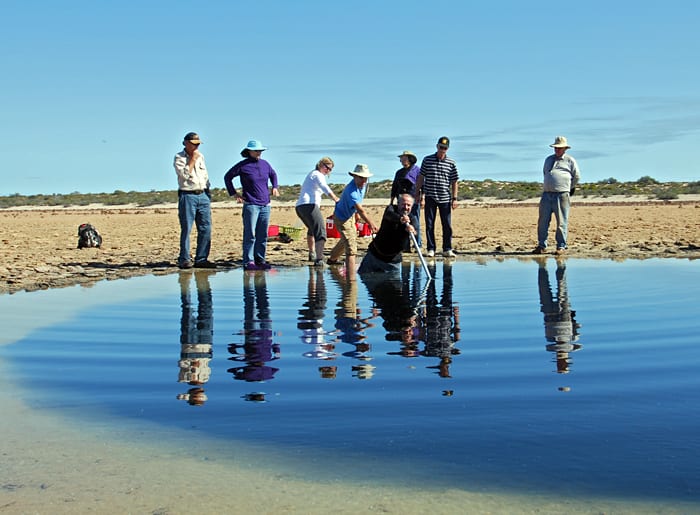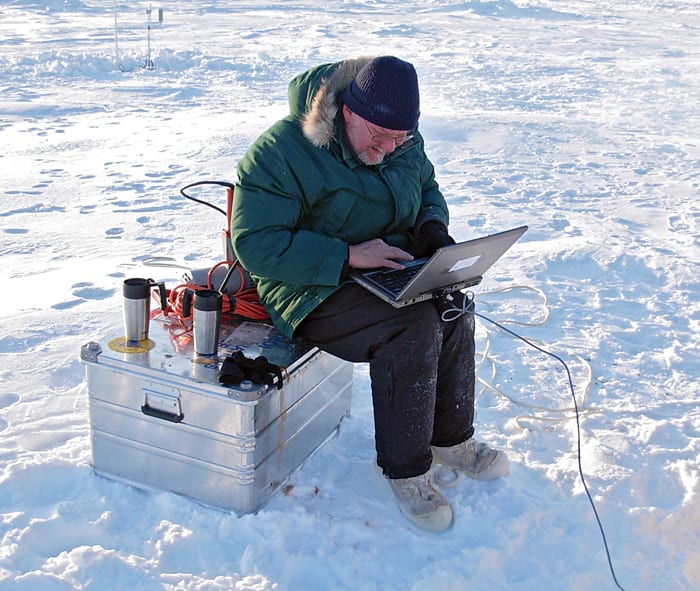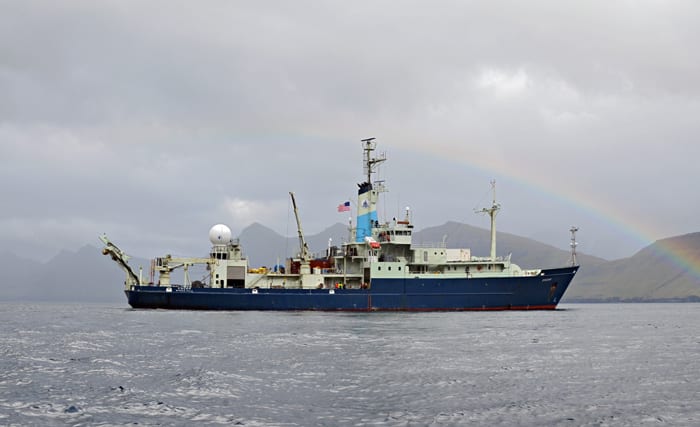Multimedia Items
Fleet at Rest
Fishing boats tied up at Dutch Harbor, Alaska, in June 2009 await their next trip to sea. A recent Morss Colloquium titled “Does it matter where we get our seafood?”…
Read MoreSearching for Life in All the Odd Places
Joan Bernhard, a geobiologist in the Department of Geology and Geophysics at WHOI, prepares a sample of seafloor sediment for analysis. Bernhard studies the single-celled eukaryotic organisms (protists) that live…
Read MoreSentry Finds New Coral in the Gulf
The autonomous underwater vehicle (AUV) Sentry is recovered to NOAA vessel McArthur II during a cruise to the Gulf of Mexico in May 2011. The goal of the cruise was…
Read MoreAll Together
Students in the MIT/WHOI Joint Program in Oceanography join Sea Education Association assistant scientist Roman Shor (second from right) raise a sail on SEA’s research vessel Corwith Cramer. The students…
Read MorePutting a Top on it
David Labranch (left) and Neil Lozey from Rose Steel, Inc., add the final beam to WHOI’s new LOSOS (Laboratory for Ocean Sensors and Observing Systems) building recently during the traditional…
Read MoreThe Core of the Matter
Elizabeth Halliday, a student in the MIT/WHOI Joint Program in Oceanography, attaches a winch collar to a coring tube so the tube can be pulled out of the sand. Each…
Read MoreSentinels of the South
Though Cape Royds, Antarctica, may seem like a harsh place, it actually provides a fairly comfortable existence for animals like these penguins. It has high ground, plenty of pebbles with…
Read MoreAgainst the Wall
Kelton McMahon, a postdoctoral investigator in WHOI’s Fish Ecology Laboratory and a graduate of the MIT/WHOI Joint Program in Oceanography, observes the fish living on a coral reef. McMahon has…
Read MoreDr. Livingston, I Presume?
Summer Student Fellow Leah Fine recently found herself deeply immersed in preparations for the arrival of Hurricane Irene in Cape Cod. The Amherst College student delayed her return to school…
Read MoreSummer of Science
Bigelow Laboratory and Dyer’s Dock are shown in the upper left portion of this historical photo of Woods Hole, as ferry to Martha’s Vineyard is pulling into the terminus of…
Read MorePrimal Crust
Cyanobacteria and other microbiota produce thick mats that bind sedimentary particles and can form stromatolites such as these crusting a pool in Shark Bay, Australia. Because they include hard components…
Read MoreMaking Things Shipshape
Able Seaman Susan Coleman makes repairs to R/V Knorr while out at sea. She was participating in the DynAMITE (Dynamics of Abyssal Mixing and Interior Transports Experiment) cruise led by…
Read MoreSentinel in the Sea
Often it’s the smallest creatures that tell us about the largest climate issues. Summer Student Fellow Max Kaplan, visiting from St. Andrew’s in Scotland, turned to the recently hatched longfin…
Read MoreScoping Out Corals and Climate Change
WHOI scientist Pat Lohmann removes a core drilled from a living coral during a recent field expedition to Palau, a remote coral reef archipelago in the far western Pacific. The…
Read MoreGoing Fishing
Amy Kukulya releases a REMUS 100 autonomous underwater vehicle (AUV) into the water over the shelfbreak north of Cape Hatteras. The WHOI engineer was part of a cruise in August…
Read MoreJoin ROV Jason on a Mediterranean Mission
The remotely operated vehicle Jason, seen here being recovered after a mission, was designed and built by the Deep Submergence Laboratory at WHOI to give scientists access to the seafloor…
Read MoreThe Moor the Merrier
Workers load a stretch hose onto the resarch vessel R/V Wecoma for the Inshore Mooring Test 2 (ISMT2) in Newport, Oregon, in March as part of the Ocean Observatories Initiative…
Read MoreOf Sand and Microbes
WHOI microbial ecologist Rebecca Gast checks the distances between sample sites on the beach at Duck, N.C., as research associate Levi Gorrell places a coring tube and physical oceanographer Britt…
Read MoreSampling the Sampler
Crystal Breier, Kamila Stastna, Ken Buesseler, and Sachiko Yoshida (left to right) draw water from a rosette sampler in June 2011 on board the R/V Ka’imikai-o-Kanaloa. The cruise was organized…
Read MoreA New Lab Takes Shape
In August, construction workers at WHOI began pouring the walls for the lower floors of the new LOSOS (Laboratory for Ocean Sensors and Observing Systems) building on the Quissett Campus.…
Read MoreOcean On the Rocks
Icebergs catch the morning light outside Sermilik Fjord near the town of Tasiilaq in eastern Greenland. Massive icebergs like these break off from outlet glaciers that connect directly to the…
Read MoreA Dip in the Pool
Researchers gather samples of mud from a blue pool near the edge of Shark Bay, Australia. Blue pools are small bodies of water that are much more salty than seawater.…
Read MoreIcy Office Cubicle
At Camp Barneo, an ice camp near the North Pole, WHOI senior research specialist Rick Krishfield “talks” to an Ice-Tethered Profiler, to ensure that it’s functioning properly before leaving it…
Read MoreEnd of the Rainbow, End of a Mission
R/V Knorr recently visited the Faroe Islands (in background) at the tail-end of a month-long cruise to investigate the origins of a newly discovered current flowing south through the Denmark…
Read More
